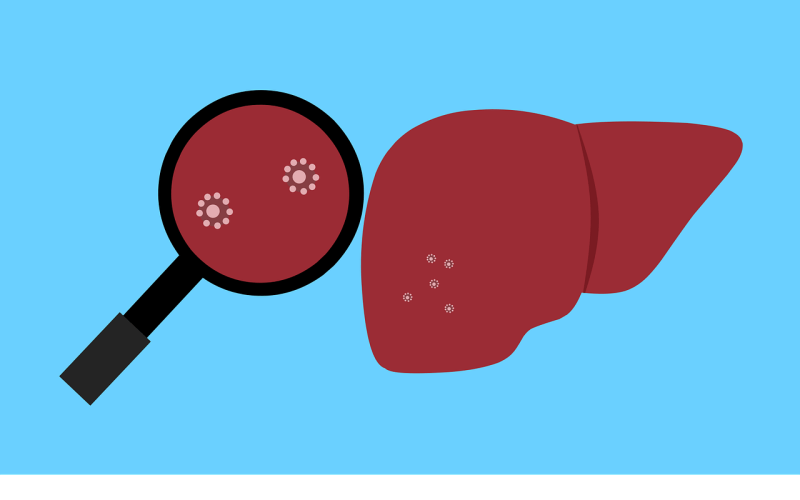The liver is a vital organ responsible for processing medications and toxins in the body. While medications are designed to improve our health, some can have adverse effects on the liver. Liver damage caused by medications, known as drug-induced liver injury (DILI), can be a serious and potentially life-threatening condition. In this article, we will explore ten common medications that have been associated with liver damage. It’s important to note that the risk of liver damage varies from person to person, and not everyone who takes these medications will experience liver problems. However, understanding these risks can help you make informed decisions about your healthcare and take necessary precautions.
1. Acetaminophen (Tylenol)
Acetaminophen is a widely used over-the-counter pain reliever and fever reducer. When taken as directed, it is generally safe. However, excessive doses or long-term use can lead to liver damage. It’s important to follow the recommended dosage and avoid exceeding the maximum daily limit. Individuals with pre-existing liver disease or those who consume alcohol regularly should exercise extra caution. If you’re looking for alternative pain relievers, consider discussing options like ibuprofen or naproxen with your healthcare provider.
2. Nonsteroidal Anti-Inflammatory Drugs (NSAIDs)
NSAIDs, such as ibuprofen (Advil, Motrin) and naproxen (Aleve), are commonly used to relieve pain, inflammation, and fever. While most people can safely use NSAIDs, these medications can cause liver damage in rare cases. Individuals with underlying liver disease, including viral hepatitis, are at a higher risk. It’s essential to follow the recommended dosage and use NSAIDs for the shortest duration necessary. If you have concerns about the impact of NSAIDs on your liver, consult your healthcare provider.
3. Methotrexate
Methotrexate is a medication commonly used to treat certain types of cancer, rheumatoid arthritis, and psoriasis. While it can be highly effective, methotrexate has the potential to cause liver damage. Regular monitoring of liver function is crucial when taking this medication. It’s essential to discuss the risks and benefits with your healthcare provider and follow their recommended monitoring schedule.
4. Statins
Statins are a class of medications prescribed to lower cholesterol levels and reduce the risk of heart disease. While statins are generally well-tolerated, they can rarely cause liver damage. Regular monitoring of liver function is typically recommended during statin therapy. Examples of statins include atorvastatin (Lipitor), simvastatin (Zocor), and rosuvastatin (Crestor). If you experience any symptoms of liver problems, such as yellowing of the skin or eyes, dark urine, or abdominal pain, contact your healthcare provider immediately.
5. Anti-Seizure Medications
Certain anti-seizure medications, including valproic acid (Depakote) and carbamazepine (Tegretol), can cause liver damage. Regular monitoring of liver function is typically advised while taking these medications. If you are prescribed an anti-seizure medication, it’s crucial to communicate any symptoms of liver problems to your healthcare provider.
6. Isoniazid
Isoniazid is an antibiotic used in the treatment of tuberculosis (TB). While it is an effective medication, it can cause liver damage. Regular monitoring of liver function is essential for individuals taking isoniazid. If you experience any symptoms of liver problems, such as fatigue, loss of appetite, or jaundice, seek medical attention promptly.
7. Amiodarone (Pacerone)
Amiodarone (Pacerone) is a medication used to treat certain heart rhythm disorders. Although it is highly effective, amiodarone can have potentially severe side effects, including liver damage. Regular monitoring of liver function is typically recommended during amiodarone therapy. If you experience any symptoms of liver problems, notify your healthcare provider immediately.
8. Antibiotics
Certain antibiotics, such as amoxicillin-clavulanate (Augmentin), azithromycin (Zithromax), and erythromycin, can rarely cause liver damage. While these cases are rare, it’s essential to be aware of the potential risks. If you are prescribed an antibiotic, follow the recommended dosage and duration of treatment. If you experience any symptoms of liver problems, consult your healthcare provider.
9. Antifungal Medications
Some antifungal medications, such as fluconazole (Diflucan) and ketoconazole, have been associated with liver damage in rare cases. It’s crucial to discuss the potential risks with your healthcare provider if you require antifungal treatment. Regular liver function monitoring may be recommended.
10. Herbal Supplements
Certain herbal supplements, despite being marketed as natural and safe, can also pose a risk to the liver. Examples include kava, comfrey, and green tea extract. It’s essential to exercise caution when using herbal supplements and consult your healthcare provider or a qualified herbalist for guidance.
Conclusion
While these medications have the potential to cause liver damage, it’s important to remember that the occurrence of liver problems is relatively rare. Most individuals can safely take these medications without experiencing any adverse effects on their liver. However, it’s crucial to be aware of the potential risks, especially if you have pre-existing liver disease or are taking multiple medications.
If you have concerns about the impact of any medication on your liver, it’s important to discuss them with your healthcare provider. They can assess your specific situation, evaluate the benefits versus risks, and provide appropriate guidance.
At RxGo, we understand the importance of medication safety and affordability. Remember, you can always rely on our prescription discount card to help reduce your out-of-pocket costs for a wide range of medications. Prioritize your liver health and make informed decisions about your medication regimen to ensure a healthier future.
Note: The information provided in this article is for educational purposes only and should not be substituted for professional medical advice. Always consult with your healthcare provider for personalized guidance and treatment options.

